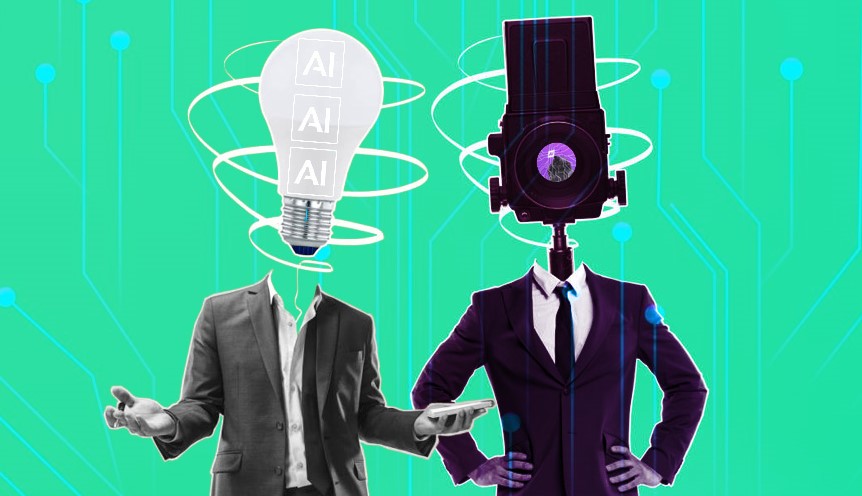Top 6 AI Trends 2023

Artificial Intelligence (AI) has rapidly transformed our world, revolutionizing various industries and shaping the future of technology. As we approach 2023, it’s essential to stay updated on the latest AI trends that will continue to impact our lives. In this article, we will explore the top six AI trends that are predicted to dominate the landscape in the coming years.
From advancements in machine learning algorithms to the growing adoption of natural language processing, AI is poised to make significant strides in improving efficiency, personalization, and decision-making processes across industries such as healthcare, finance, retail, and manufacturing.
One of the key trends we will delve into is the rise of explainable AI, where AI models are designed to provide clear explanations and justifications for their decisions. This will help ensure transparency and build trust between humans and AI systems.
Additionally, we will explore how AI is set to enhance customer experiences through voice and image recognition technologies, making personalized interactions and intuitive interfaces a reality.
Join us as we uncover these compelling AI trends and gain valuable insights into the future of this transformative technology.
Importance of AI in various industries
AI has become a crucial component in various industries, bringing numerous benefits and driving innovation. In healthcare, AI is being used to analyze vast amounts of medical data, aiding in the early detection and diagnosis of diseases. It can also assist in personalized treatment plans and drug discovery. Moreover, AI-powered chatbots are improving patient engagement and providing round-the-clock support.
In the finance and banking sector, AI is streamlining operations, reducing costs, and improving customer experiences. Intelligent algorithms are being utilized for fraud detection, risk assessment, and credit scoring. AI-powered virtual assistants are also becoming increasingly popular, providing personalized financial advice and handling customer inquiries.
The retail and e-commerce industry is leveraging AI to enhance customer experiences and boost sales. AI-powered recommendation engines are providing personalized product suggestions, increasing customer engagement and conversion rates. Additionally, chatbots and virtual shopping assistants are improving customer service and facilitating seamless shopping experiences.
AI trends in healthcare
AI is set to revolutionize healthcare in 2023 and beyond. One of the key trends is the use of AI-powered diagnostics. Machine learning algorithms can analyze medical images, such as X-rays and CT scans, with remarkable accuracy, aiding in the early detection of diseases. AI can also analyze patient data to predict disease progression and recommend personalized treatment plans.
Another trend is the adoption of AI in drug discovery. Traditional drug development processes are time-consuming and costly. AI can accelerate this process by analyzing vast amounts of data, including genetic information and clinical trial results, to identify potential drug candidates. This can lead to faster and more efficient drug development, benefiting patients worldwide.
Furthermore, AI is being used to improve patient care and monitoring. Smart wearables equipped with AI algorithms can continuously track vital signs, detect anomalies, and alert healthcare professionals in real-time. This enables proactive interventions and remote patient monitoring, enhancing healthcare outcomes and reducing hospital readmissions.
AI trends in finance and banking
In the finance and banking sector, AI is poised to transform operations and customer experiences. One of the key trends is the use of AI for fraud detection and prevention. Machine learning algorithms can analyze vast amounts of financial data to identify patterns and anomalies, flagging suspicious activities and preventing fraudulent transactions. This helps protect both customers and financial institutions.
Another trend is the adoption of AI-powered virtual assistants in banking. These virtual assistants can handle customer inquiries, provide personalized financial advice, and even execute transactions. They can also analyze customer data to offer tailored product recommendations and improve customer engagement. With the rise of voice recognition technology, customers can interact with virtual assistants using natural language, making banking more convenient and accessible.
Moreover, AI is being utilized for risk assessment and credit scoring. Algorithms can analyze credit histories, financial statements, and other relevant data to assess creditworthiness accurately. This enables financial institutions to make informed lending decisions quickly and efficiently, reducing the risk of default and improving overall portfolio performance.
AI trends in retail and e-commerce
The retail and e-commerce industry is leveraging AI to enhance customer experiences and drive sales. One of the significant trends is the use of AI-powered recommendation engines. These engines analyze customer data, including purchase history and browsing behavior, to provide personalized product recommendations. By tailoring suggestions to individual preferences, retailers can increase customer engagement and conversion rates.
Additionally, AI is being used to optimize supply chain and inventory management. Machine learning algorithms can analyze historical sales data, market trends, and other factors to predict demand accurately. This helps retailers optimize inventory levels, reduce stockouts, and minimize overstocking. By ensuring the right products are available at the right time, retailers can improve customer satisfaction and increase profitability.
Furthermore, AI-powered chatbots and virtual shopping assistants are becoming increasingly popular. These virtual assistants can provide real-time customer support, answer inquiries, and guide customers through the purchasing process. By offering personalized assistance and resolving customer issues promptly, retailers can provide a seamless shopping experience and build customer loyalty.
AI trends in transportation and logistics
AI is set to revolutionize the transportation and logistics industry, improving efficiency and reducing costs. One of the key trends is the use of AI for route optimization. Machine learning algorithms can analyze historical traffic data, weather conditions, and other factors to determine the most efficient routes for deliveries. This reduces fuel consumption, minimizes delivery times, and lowers transportation costs.
Another trend is the adoption of AI-powered predictive maintenance. By analyzing sensor data from vehicles and equipment, AI algorithms can identify potential issues before they cause breakdowns or delays. This enables proactive maintenance, reducing unplanned downtime and improving overall operational efficiency.
Moreover, AI is being used to optimize warehouse operations. Intelligent algorithms can analyze order patterns, inventory levels, and other factors to optimize picking routes and improve overall warehouse layout. This increases productivity, reduces errors, and enhances customer satisfaction by ensuring timely and accurate deliveries.
AI trends in marketing and advertising
AI is transforming the marketing and advertising landscape, enabling personalized and targeted campaigns. One of the significant trends is the use of AI for customer segmentation and targeting. Machine learning algorithms can analyze vast amounts of customer data to identify patterns and preferences, enabling marketers to create highly targeted campaigns. This improves marketing effectiveness, increases customer engagement, and drives sales.
Another trend is the adoption of AI-powered chatbots and virtual assistants in customer service. These virtual assistants can handle customer inquiries, provide real-time support, and even process orders. By offering personalized assistance and resolving customer issues promptly, businesses can enhance customer satisfaction and build brand loyalty.
Furthermore, AI is being utilized for sentiment analysis and social media monitoring. Algorithms can analyze social media posts, customer reviews, and other data sources to gauge public sentiment towards a brand or product. This provides valuable insights for marketers, enabling them to refine their strategies, address customer concerns, and capitalize on emerging trends.
Ethical considerations in AI development
As AI becomes increasingly integrated into our lives, ethical considerations become paramount. One of the key ethical considerations is the transparency and explainability of AI algorithms. As AI systems make decisions that impact individuals and society, it is crucial to understand how these decisions are reached. Explainable AI aims to provide clear explanations and justifications for AI decisions, ensuring transparency and building trust.
Another ethical consideration is the bias in AI algorithms. AI systems are trained on historical data, which may contain biased information. This can perpetuate existing biases and inequalities. It is essential to address bias in AI algorithms to ensure fairness and prevent discrimination.
Moreover, privacy and data protection are critical ethical considerations in AI development. AI systems often rely on vast amounts of personal data to function effectively. It is crucial to ensure that this data is handled responsibly, with appropriate safeguards in place to protect individuals’ privacy and prevent unauthorized access.
The future of AI and its impact on society
The future of AI is promising, with significant implications for society. AI is expected to continue advancing in areas such as machine learning, natural language processing, and computer vision. This will enable even more sophisticated applications and further integration into our daily lives.
AI has the potential to improve efficiency, enhance decision-making processes, and drive innovation across various industries. However, it also raises concerns about job displacement and the potential for AI to outperform humans in certain tasks. It is crucial to find a balance between the benefits and risks of AI to ensure it is used responsibly and ethically.
Moreover, as AI continues to evolve, it is essential to address ethical considerations and establish robust regulatory frameworks. This will help mitigate potential risks and ensure that AI is developed and deployed in a manner that benefits society as a whole.
In conclusion, AI is set to dominate the technological landscape in 2023 and beyond. From healthcare and finance to retail and transportation, AI is transforming industries and revolutionizing the way we live and work. By staying updated on the latest AI trends, we can harness the power of AI to drive innovation, enhance efficiency, and improve lives. As AI continues to evolve, it is crucial to address ethical considerations and ensure that its development and deployment are guided by responsible practices. Only then can we fully unlock the transformative potential of AI and create a future that benefits everyone.
Conclusion
Machine learning algorithms are the backbone of AI systems, enabling machines to learn from data and make predictions or take actions without explicit programming. In 2023, we can expect significant advancements in machine learning algorithms, particularly in the areas of deep learning and reinforcement learning.
Deep learning, a subset of machine learning inspired by the structure and function of the human brain, will continue to push the boundaries of AI capabilities. Neural networks with multiple layers will become more sophisticated, allowing AI systems to understand complex patterns and relationships in data, leading to more accurate predictions and insights.
Reinforcement learning, on the other hand, focuses on training AI agents to make decisions based on trial and error. In 2023, we can anticipate the development of more efficient reinforcement learning algorithms that enable AI systems to learn and adapt in dynamic environments, such as autonomous vehicles and robotics.
Overall, advancements in machine learning algorithms will drive the progress of AI systems, enabling them to solve increasingly complex problems and deliver more accurate results.






